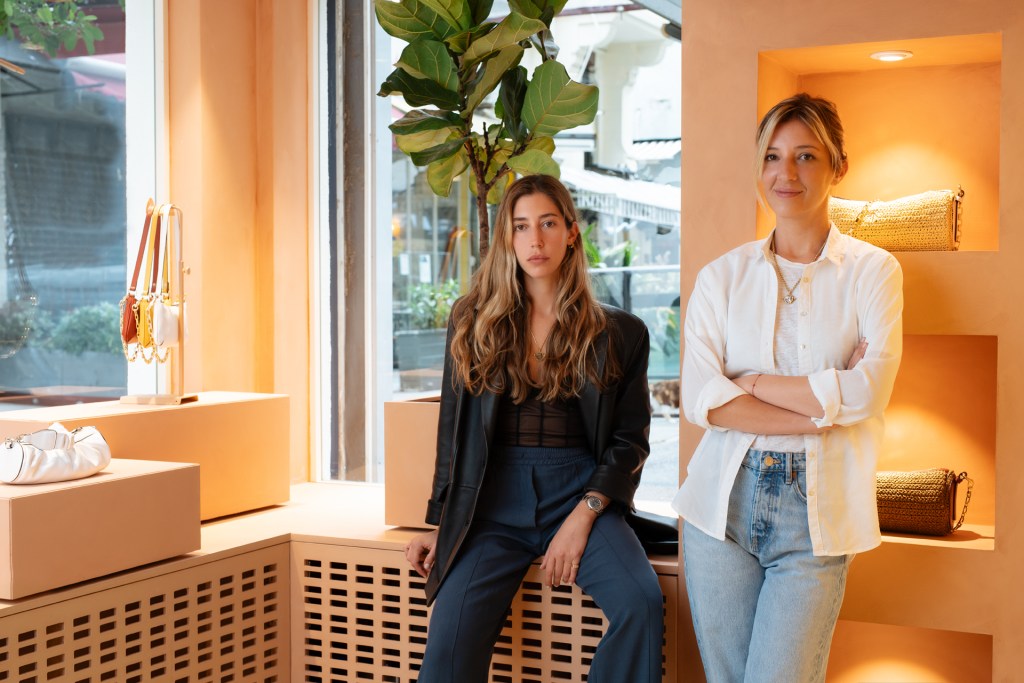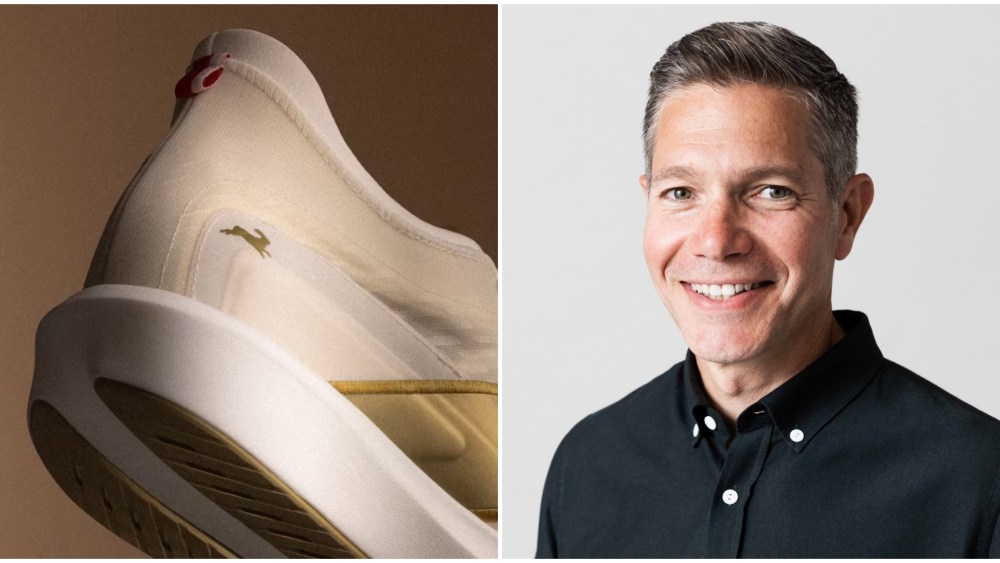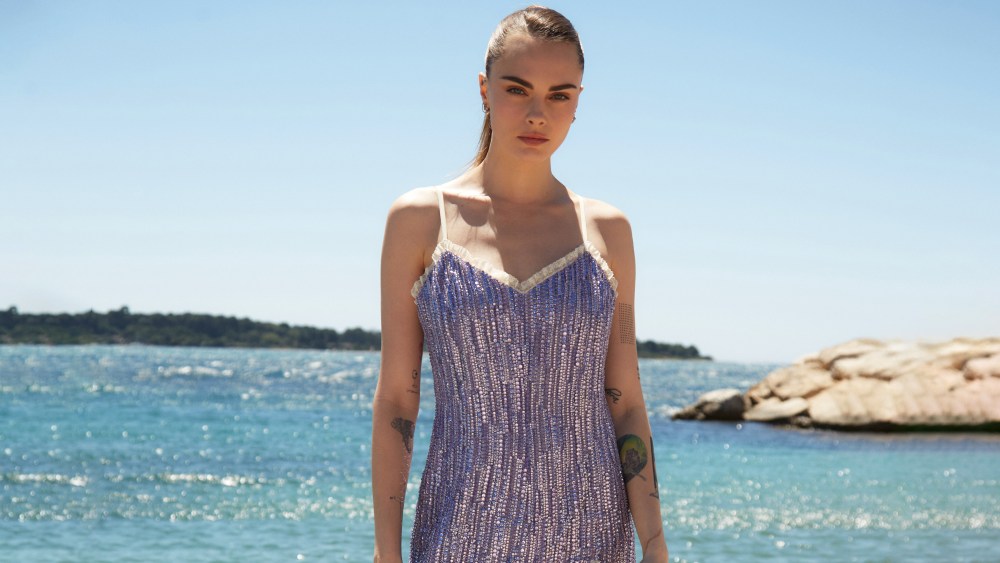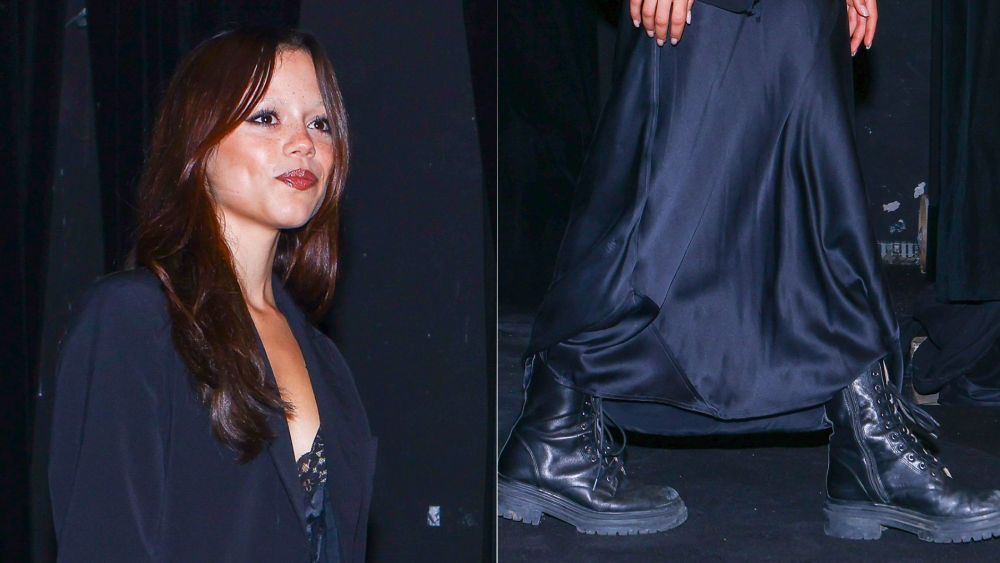MILAN — Turkish leather goods brand Manu Atelier is ready to mark its first decade with a back-to-the-origins product launch.
Ahead of the anniversary celebrations next year, the hip label’s founders and sisters Merve and Beste Manastir are relaunching the patented Pristine bag, their first design credited to have kick-started Manu Atelier’s ascension into the contemporary market in 2014.
The renewed, mini version of the structured bucket style — which was also showcased at the V&A Museum “About the Bags: Inside Out” exhibition for its distinctive handcrafted design – has been released as part of the label’s resort 2024 collection, dropped this week and is available in popular colorways of black, vanilla and brown.
Throughout the past decade, the sisters tweaked the Pristine style multiple times, noting it’s “like the iPhone for us,” improving linings, hardware and materials used to make it as long-lasting as possible.
“The Pristine has a really important role for us as a business but also from an emotional side because it’s a product we worked on seven times before launching it 10 years ago,” Merve Manastir told WWD, recalling multiple brainstorming sessions — and even arguments — during the initial product development. “We wanted to rework it also because we personally missed wearing it… and because it was just a cross-body bag, now [we turned it] also in a shoulder bag, so we can wear it in both ways, which was something we wanted to have back in the day but never did,” she added.

As daughters of a seasoned craftsman and leather goods manufacturer in Turkey, the Manastirs launched Manu Atelier with the aim of translating their father’s craft in a modern way. In addition to the new mini Pristine bag, the sisters said that as part of the anniversary celebrations they are plotting making a short film dedicated to their father Adnan, who’s been in the business for more than 55 years and still cuts the pattern for every single bag the brand produces.
The Manastirs have always taken pride in pointing the spotlight on their home country’s artisanal expertise and in-house atelier, specifically. The company boasts a local manufacturing and vertical production system that puts the founders in the position of controlling both the quality of their products and improving the sustainable standards of the manufacturing process, spanning from the local sourcing of raw materials to implementing handcrafting techniques that have less impact on the environment and deploying leather offcuts on new bag designs.
“Even before launching the brand, we worked a year and a half to make sure that we were making everything that we could to be able to create a timeless brand. That was our biggest aim: to bring our father’s talent into a global arena and also to be able to show the good quality craftsmanship which can be achieved in Turkey,” recalled Merve Manastir. “That’s how we started, we’ve always been very specific and very selective with the people we worked with. We had and still have some ethic values that are really key to us.”

Among the most influential people in Manu Atelier’s journey, the founders mentioned the pivotal role of “our business mom” Luisa de Paula, the brand’s sales agent at the time, who was among the first to believe in the quality of the product by coming across the original Pristine bag. Jointly with the brand’s communication on Instagram and a little help of Eva Chen (who wore the Pristine bag), the label quickly garnered the attention of big local retailer Vakko — still one of Manu Atelier’s biggest accounts — and international ones such as Selfridges and Harrods.
Today, key stockists include LuisaViaRoma, Net-a-porter China, Galeries Lafayette Doha, Neiman Marcus and Printemps, among others. Starting with the resort 2024 collection, Manu Atelier is also entering in retailer Ounass, marking a big step for the company in the Middle East, where the Manastirs see potential for growth.
Without disclosing sales figures, the sisters said that the company’s strongest markets are the U.S. and China, followed by European countries such as Italy, France and Portugal. In addition to the Middle East, they eye potential success in Japan and South Korea but “we’d love to grow solidly and strengthen our brand right now, then take another step,” said Beste Manastir.
The cofounder underscored the commitment in further improving the brand’s presence both in the retail and wholesale channel going forward. “But we also want to open our own stores in our most successful areas obviously, maybe starting with some pop-ups,” she added. “We believe that Manu Atelier needs to have its own store… because we love that shopping experience, being physically there and touching the products, having conversations or a little coffee. We want our customers to feel that not just in Turkey but all around the world,” said Manastir, referencing the company’s flagship that opened in Istanbul in 2021.

Product expansion is on the agenda, too. After introducing footwear last year, which was developed with suppliers in Italy’s Veneto region, Beste Manastir revealed the duo has “an eye on ready-to-wear, actually. We’ve been thinking and working on it for some time.”
The sisters have toyed with the category already, when for a 2021 campaign they developed clothing made especially for the shoot, including raffia tops sewn together and leather trousers made in collaboration with designer Lou de Betoly using leather leftovers from the brand’s accessories production.
Overall, Manu Atelier bags retail between 350 euros and 475 euros, an accessible price point that attracts women aged 20 to 45 to its sleek designs and clean aesthetic in classic hues. In terms of popular styles, founders name-checked the classic Cylinder bag launched five years ago, and the Ilda style, as well as the capacious Tote du Jour in a grained leather or soft suede, which has received many Chinese pre-orders. Other highlights include in the latest collection include the elegant Nova bucket bag and soft mini Gala style, as well as the sleek, ’90s-inspired pointy-toe knee-high boots and the Almond Toe sandals.

Asked about the evolution of their creative approach over the past decade, the Manastirs confirmed that at the core it stayed the same, although references and inspirations have changed “because we’re growing up and our interests are changing, too.”
“There is a specific aesthetic in our customers’ minds. But this was actually also one of the very challenging parts [of the business] too, because in such a changing market, to keep up with the sales and to stay true to yourself is really hard sometimes,” said Beste Manastir. “You have to make a decision between the numbers or your brand. Yet we believe that being true to yourself is how you stay around for a long time.”
Building a team outside of a fashion capital has been tough, the sisters said. But Merve Manastir noted that the brand has built and consolidated relationships with suppliers, instead.
“For example, when we first started, I was 23 and Beste was 28 and leather suppliers were not even [paying attention to us] because for them we were just two children. Even more in Turkey, where that’s a very male-dominated sector,” she recalled. “It took a lot of time and a lot of working to get accepted,” continued Manastir, pointing to how starting the business independently “gave us the strength and the knowledge in all areas of our business.”
“That’s why we never thought of having a stranger or others’ cash inside our business, as long as there is nothing extra that they can put in. We need to feel that added value: in that case, we’re open to have discussions,” she added.

Ditto for collaborations, an area that the sisters have already explored and are planning to do more so in the future, but at their own terms.
“When we do something like that, we want to go all in. We really like ‘all or nothing’ type of people… but it needs to be in a more relaxed time for us, so we can do our best for any project,” said Manastir. “We both believe in the right time, with products that have an idea underline, because the world is changing and definitely doesn’t need any more products. And we are trying to take our actions, accordingly,” she said.



